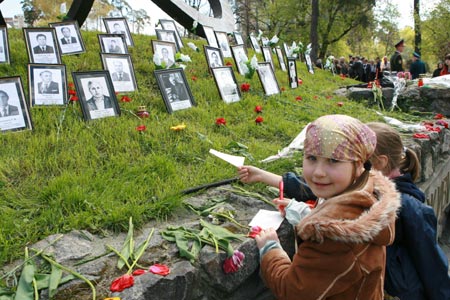Ralph Nader on the perils of nuclear power, the fight for green energy, and threats to American democracy
Listen Now Download the show by right-clicking the link.
In this episode, Dr. Caldicott interviews Ralph Nader, one of America’s most effective social critics. Named by The Atlantic as one of the 100 most influential figures in American history, and by Time and Life magazines as one of the hundred most influential Americans of the twentieth century, his documented criticism of government and industry has had widespread effect on public awareness and bureaucratic power. Nader is an American attorney, author, lecturer, political activist, and four-time candidate for president of the United States, having run as a Green Party candidate in 1996 and 2000, and as an independent candidate in 2004 and 2008. For over four decades, Nader has exposed problems and organized millions of citizens into more than 100 public interest groups to advocate for solutions. His efforts have helped create a framework of laws, regulatory agencies, and federal standards that have improved the quality of life for two generations of Americans. Visit the Web site of Public Citizen, an organization founded by Nader, and Nader’s own site Nader.org.
Near the top of the interview, Dr. Caldicott asks Nader for his perception of nuclear power today. He talks about nuclear energy as “corporate-welfare-promoted technology.” He dismantles the current propaganda by the nuclear industry that nuclear power is a solution to global warming. Nader also covers the government loan guarantees that subsidize the industry, the current Energy Bill, and why certain politicians and environmentalists have been swayed by the smokescreen about nuclear energy. He takes certain environmental groups to task and then focuses on the immensely larger returns that could be realized from investments in wind and solar power. Nader praises Amory Lovins for his prinicipled examination of the economic failings of nuclear power. Read Lovins’s 2009 article Stewart Brand’s nuclear enthusiasm falls short on facts and logic. Dr. Caldicott emphasizes the enormous health risks of nuclear power, which could lead to epidemics of disease in children. One meltdown in the U.S., she notes, would end nuclear power. Nader articulates how large a region would be contaminated by a nuclear accident, and the dumping of nuclear waste in the Indian Ocean.

Students commemorate the Chernobyl nuclear meltdown victims in Kiev, Ukraine, April 26, 2008. (Xinhua photo)
Dr. Caldicott asks Nader to explain who is paying former EPA chief Christine Todd Whitman and Patrick Moore to promote nuclear power. Read the 2010 article Christine Todd Whitman, Patrick Moore Fail to Disclose They are Paid to Promote Nuclear Energy and the 2007 article The Other Half of the Nuclear Industry’s Power Couple: Christine Todd Whitman.
Dr. Caldicott asks Nader how those opposing nuclear energy can reach people in the media when personalities like Rush Limbaugh prey on public ignorance. Nader talks about the positive effects of independent media. He provides some critical talking points that would convince intelligent people that nuclear power is not worth the health and safety, terrorism and economic risks. Taxpayers are made to pay for the renewal of aging reactors, he says, and have no say in the role of nuclear power. Nader outlines some arguments that even true conservatives should embrace about the catastrophic risks associated with nuclear power. It would be impossible to immediately and permamently evacuate New York City if a reactor were to melt down. Read the Union of Concerned Scientists report Chernobyl on the Hudson: Impacts of a Terrorist Attack at Indian Point Nuclear Power Plant . Nader explains how the nuclear industry [led by its front group the Nuclear Energy Institute] has coerced Congresspeople who might otherwise criticize nuclear power into supporting nuclear energy in lieu of renewables like wind and solar power. He says it would only take two to three million dollars to fortify the antinuclear groups in Washington who do their best to block nuclear power and nuclear weapons. Nader then segues into his rationale for writing his latest book, the novel Only the Super-Rich Could Save Us. The book’s premise is that a fraction of the fortunes of the nation’s wealthiest people could easily be diverted to support “good works” that ensure U.S. citizens have a living wage, national health care, and a safe environment. Dr. Caldicott lauds Nader’s depiction of fictitional characters in Only the Super-Rich. Nader says that listeners can buy an autographed copy of Only the Super-Rich Can Save Us at CSRL.org.
Dr. Caldicott returns to the horrific consequences of nuclear power, which she say will induce cancer throughout many future generations. She also underlines the serious threat of nuclear war between the U.S. and Russia who still retain the majority of the world’s nuclear weapons on hair-trigger alert. The conversation touches on the influence of media mogul Rupert Murdoch, and the right-wing commentators who populate Murdoch’s Fox News Network, which Nader says is full of “bias and censorship.” Nader gives a critique of the policies of President Obama, noting that in Obama’s case, “high intelligence without fortitude doesn’t work” in a president that turns his back on issues of poverty, consumer safety, and employment, yet gives his full support to American war-making.
For more information, read Nader’s 2010 articles Corporate Personhood Should Be Banned, Once and For All and Mainstreaming the Extreme Right Wing. Read his 2007 article Atomic Blowback: The New Face of Nuclear Power (Same as the Old). Read the 2010 article Ralph Nader Was Right About Barack Obama and the 2009 article Ralph Nader Rips Obama For Not Phasing Out Nuclear Power. See Public Citizen’s Nuclear Relapse page and read their fact sheet The Fatal Flaws of Nuclear Power. And see the No Nukes page on Nader.org. Watch the award-winning 2003 documentary The Corporation on-line. Read the October 21 article ‘Super PAC’ American Crossroads Continues Amassing and Utilizing Hefty War Chest Ahead of Election.
